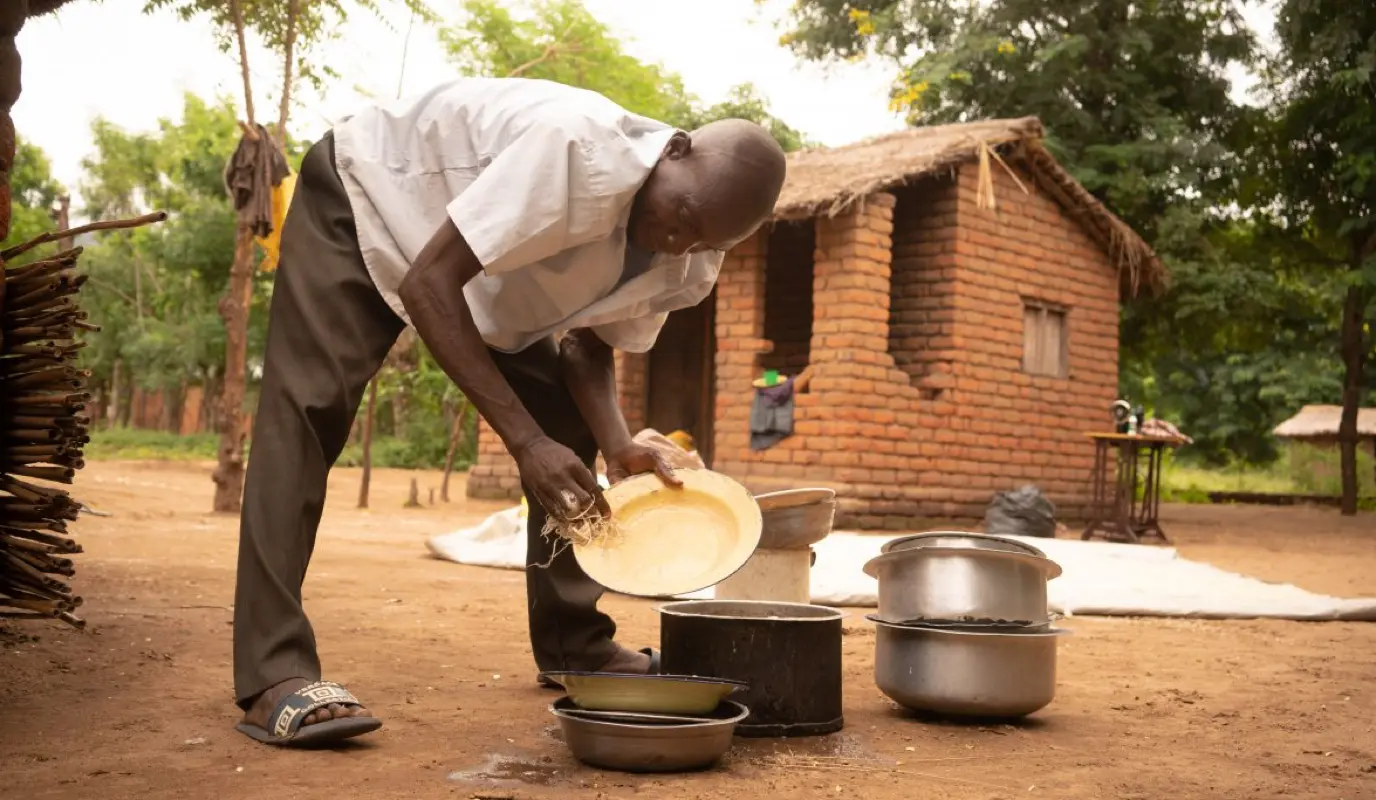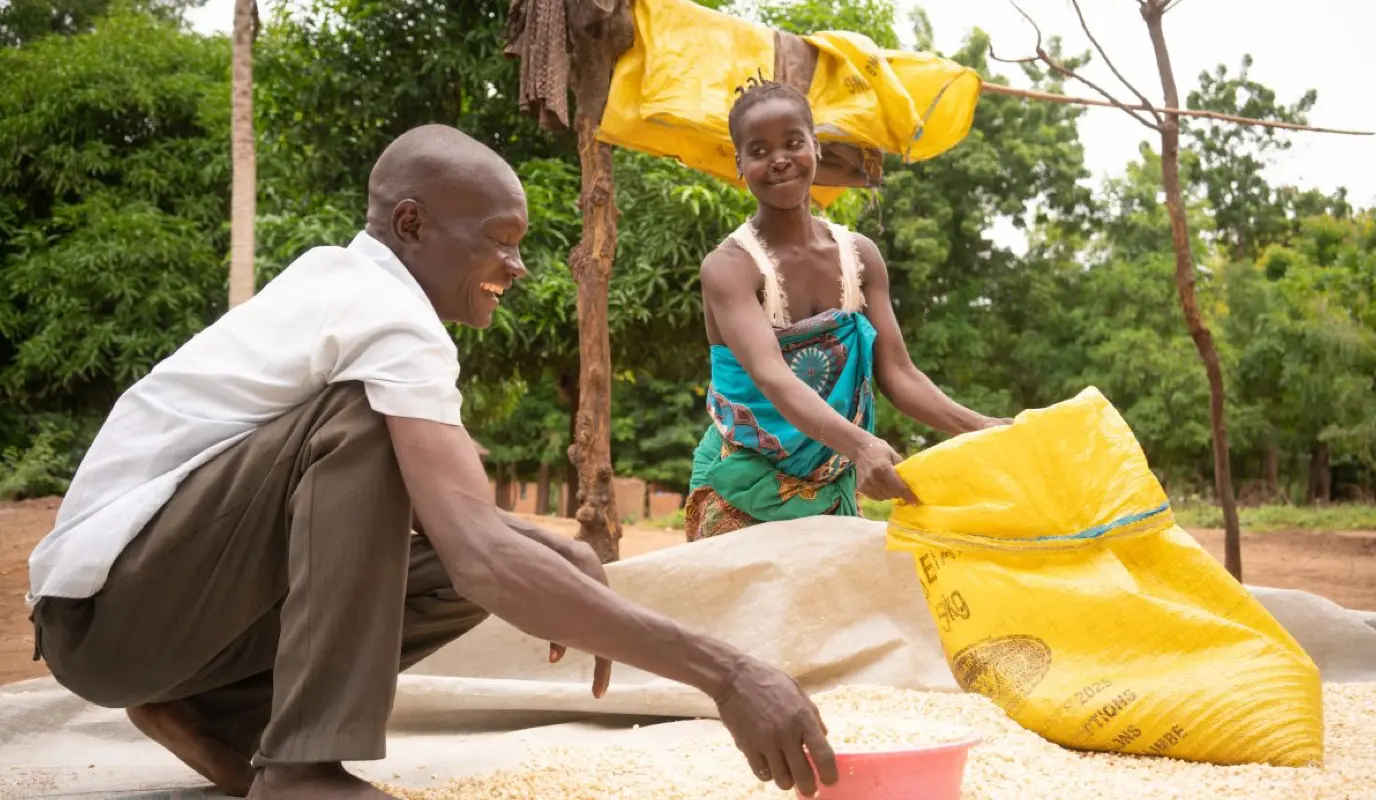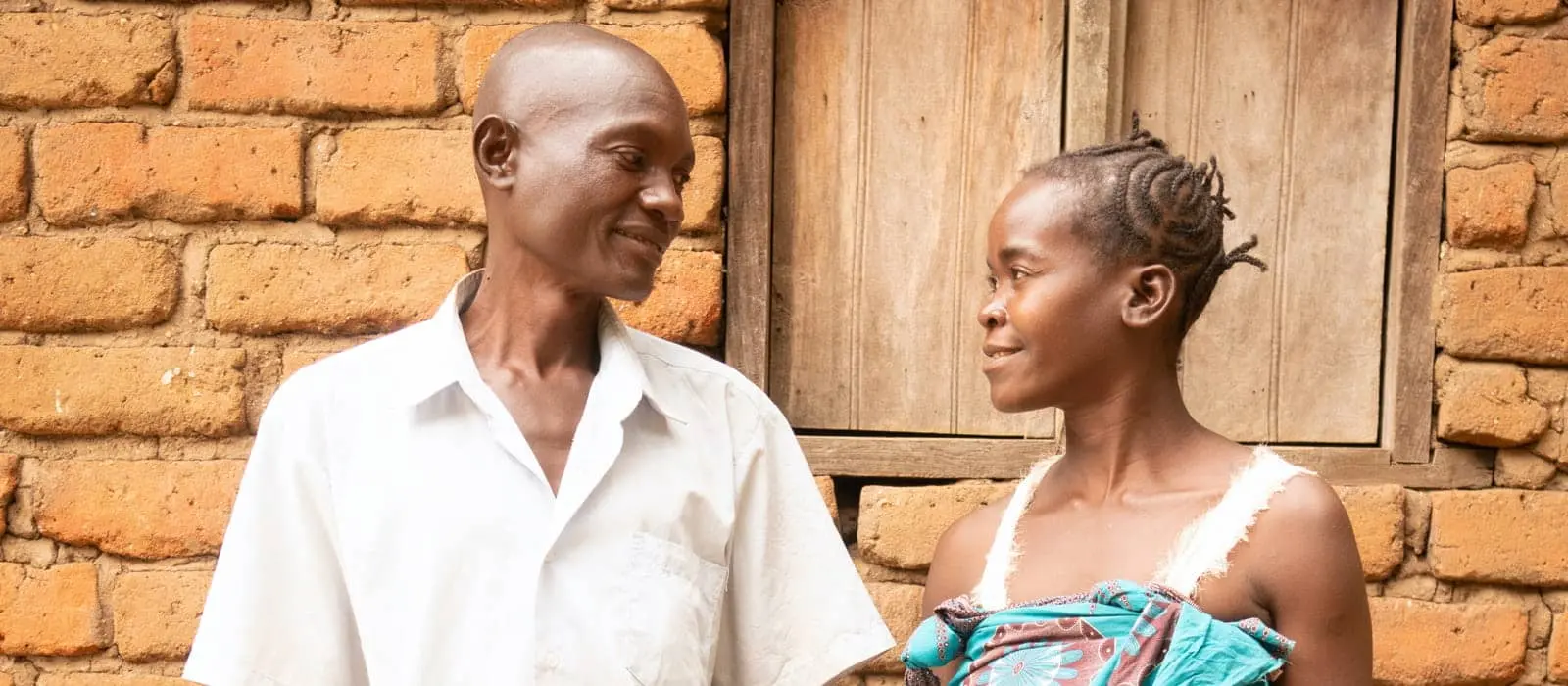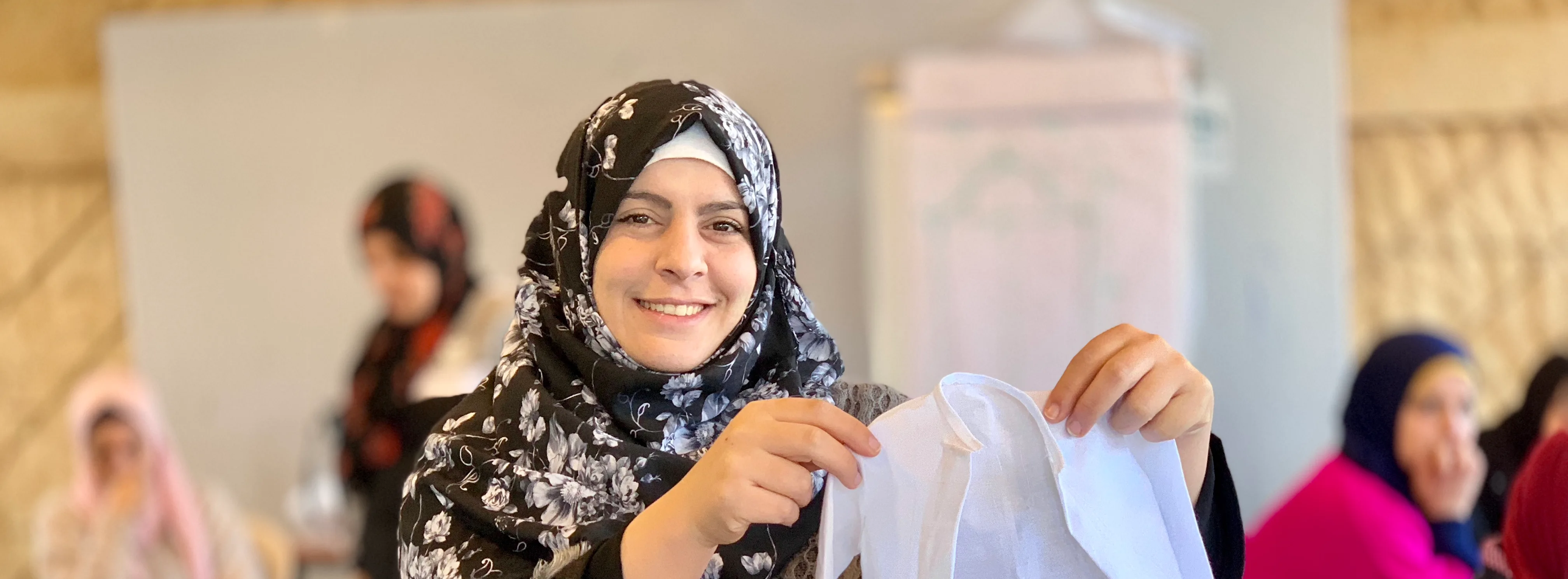A program in Malawi encourages couples to create a shared vision of their ideal future, building the foundations for gender equity and breaking the cycle of poverty.
Equality in Malawi by the numbers:
- As of the end of December, 2020, less than 42% of the indicators needed to meet gender-related UN Sustainable Development Goals were being met in Malawi
- Nearly 70% of women in Malawi live below the international poverty line
- One in four Malawian women (age 15-49) have experienced physical and/or sexual violence from a current or former partner
- 42% of women in Malawi ages 20-24 were married before their 18th birthday; 9% were married before they turned 15
- Only 47% of Malawian women have autonomy over their bodily and reproductive health
Thinking inside the box
In the rural Mangochi and Nsanje districts of Malawi, seeing a man doing the laundry, making dinner for his family, or sweeping the home is still something of an anomaly. But that may soon change.
“Others in the village think I’m strange,” Stone tells us in between washing the family’s dishes out of a purple basin in their yard and heading to his wife’s farm to pick pumpkin leaves to sell at the market. But then he cracks a knowing smile: “They are thinking ‘inside the box.’”
Stone’s wife, Rose, does the laundry for their family of five while her husband hands freshly-cleaned pots and hands them to their son for drying. As a participant in Concern Malawi’s Graduation program, Rose signed up for a program offered as part of the multifaceted and innovative approach to sustainably and permanently breaking the cycle of poverty. Knowing that gender equality in Malawi is one of the keys to eliminating poverty at scale, Concern launched “Mutu Umodzi Susenza Denga” (in the local Chichewa language, “One Head Cannot Hold Up the Roof”).
Known as “Umodzi” (“United”) for short, the program was a game-changer for Stone and Rose’s home and lives. “Before we learned the lessons of Umodzi, we were doing the ‘women's work alone,’” Rose says of the women in her village who also participated in the program. “Men were not helping at all.”

Norms far from normal
These gendered norms have been familiar territory for generations of Malawians. However, in this case tradition was holding both men and women back. Taking on the brunt of the unpaid labor required to keep a household running meant that women often had less time for paid labor. For men, the dynamics of masculinity and patriarchy meant that they didn’t see women as equals. In the worst-case scenarios, this could lead to domestic violence.
But even in the best of cases, there was an imbalance that needed to be corrected. What had been upheld as a norm was, when it comes to basic human rights and a sustainable path out of extreme poverty, far from normal.
Redefining these norms doesn’t happen overnight. And they don’t happen without a united front. A growing body of evidence has affirmed that engaging men is key to achieving gender parity. Men play an essential role in challenging the patriarchal beliefs and practices that promote the subordination of women, and as Concern has found time and again, from one country to the next, engaging men in these gender-transformative programs is essential.
Change beginning at home
Equity begins at home, which is at the heart of Umodzi’s approach. Couples participating in the program meet in groups of no more than 24 people to reflect upon and discuss issues such as gender norms, power, decision-making, budgeting, violence, positive parenting, and healthy relationships. The dialogues are facilitated by trained Gender Program Support Officers and Trainers, one male and one female officer per group.
These groups began meeting as part of a small pilot project in 2018. The following year Concern, with support from global partner Sonke Gender Justice, launched a full-scale cohort of 282 couples across Mangochi and Nsanje. The messages conveyed in each session are also woven into the Graduation program, and Graduation Case Workers follow up on the topics covered in Umodzi with their bi-monthly home visits.
Umodzi’s curriculum encourages couples to create a shared vision of their ideal future, setting up common goalposts along the way to get to that bigger picture. These shared visions lead to shared purposes, goals, and commitments: Couples participating in Umodzi have reported an easier time in making equitable decisions around how to spend their money; how to share their workload; and how to best care for their children, dependents, and themselves. Dialogue sessions, both for mixed couples and separate sessions for men and women, provide a structured community space for men and women to confront the norms, rules, and attitudes around gender that hold them back from their shared vision and goals.
New normals
The results have been nothing short of transformative. In 2019, a year in which Cyclone Idai hit hard in both the Mangochi and Nsanje districts, attendance rates for Umodzi group sessions still averaged out to 84%. The hope is that, as more families participate, the change that begins at home can take hold within entire communities and townships.
While some of their friends and neighbors may laugh, for couples now divvying up the household chores, the benefits are clear: Some couples have already constructed modern, iron-roofed houses. Others, like Rose, have established thriving enterprises (Stone helps out in this as well, harvesting produce grown on Rose’s farm and helping her bring it to market, and is proud to contribute to his wife’s business).
For fellow participants like Mary, there’s no doubt in their minds: “Business is better with gender equity,” she says with a smile and a nod. A wooly pink hat that brings out the rose in her cheeks reads “Love.” Thanks to the business Mary set up as a participant in Graduation, she and her husband Luka have been able to build a guesthouse and a 20-door brick oven.
“We've purchased metal roof sheets. We’ve bought 15 goats,” she says, ticking off the list. “Chickens and ducks? We have plenty.” When asked how they were able to afford all of this, her eyes light up. “Because we learned how to budget at Umodzi!”
“Everything is upside down — in a good way”
As Luka cooks up fresh salmon for the family — one of the three meals they now enjoy each day. Some of the women in their village admire Luka for pitching in, Mary notes. Some of their neighbors make fun of him for taking on some of the chores. Either way, it doesn’t make much of a difference to Mary, who is too busy playing with two of her youngest children in the family’s yard (her eldest three daughters are all in school, which the family can afford thanks to their income).
“They can say what they want. I’m enjoying life!” she says, smiling again. “Everything is upside down — in a good way.”

Rose and Stone agree. And, like Mary and Luka, their children are also part of the process, not only helping out at home but developing a new sense of norms that they will take with them into their future.
“Yes, I’ll do the dishes,” says their teenaged son of the wife and family he may have some day.
“You’ll wash pots?” our local interviewer asks him. “Yes!” he says.
“You’ll cook while your wife rests?”
“Again, yes!” He laughs in disbelief.
To him, there’s no question.




